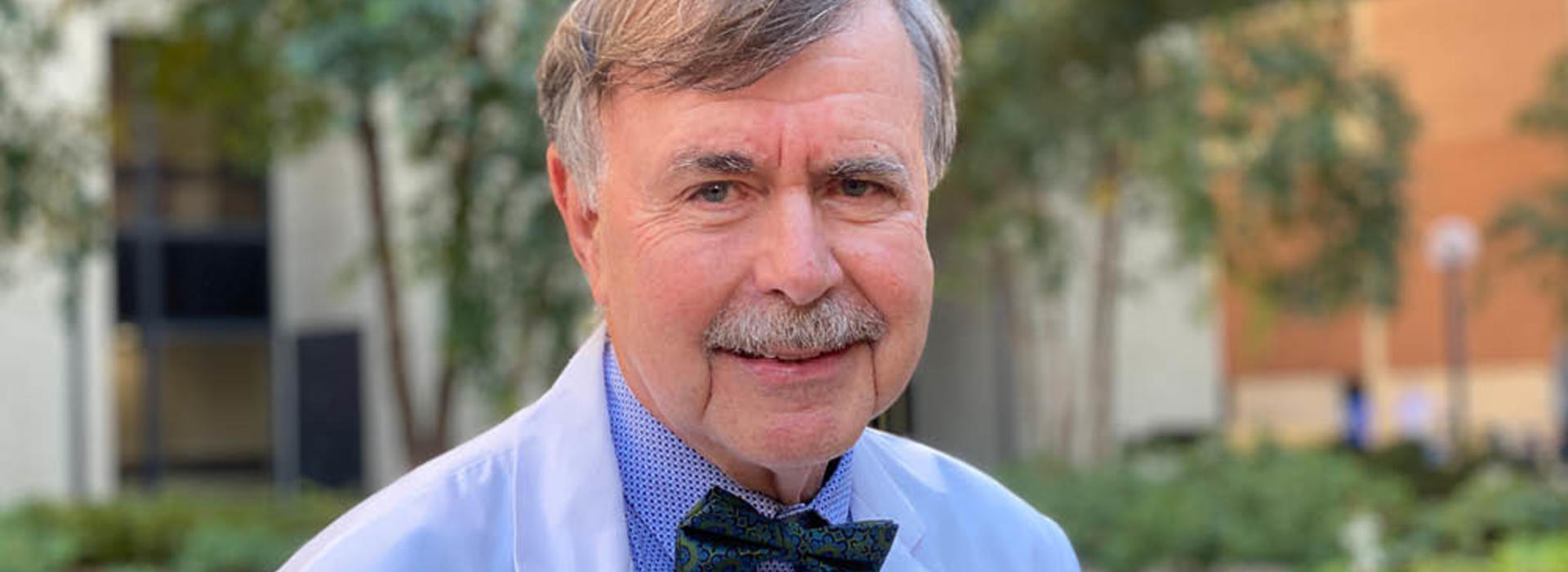
45 Years of Hematology Research Training at U of M
Greg Vercellotti, MD, FACP, professor in the Department of Medicine and director of the Hematology Research Training Program at the University of Minnesota Medical School, has been awarded a five-year, $2.5 million T32 grant from the National Heart, Lung, and Blood Institute (NHLBI). This grant will support the Hematology Research Training Program at the U of M Medical School, a specialized program designed to train physicians and scientists for careers in clinical and basic science research in hematology.
“The reason that we get funding is because of the faculty,” Dr. Vercellotti said. “We've had unbelievable scientists within the Medical School who have been part of our training program.”
Now in its 45th year, the Hematology Research Training Program is one of the longest-running training programs supported by the NHLBI and has provided training to 134 hematology research scientists since 1976. The initial program was directed by Harry Jacob, MD, who led the program from 1976 to 2000.
Dr. Jacob, professor emeritus in the Department of Medicine and former director of the Division of Hematology, Oncology and Transplantation, initiated the training program as a means to recruit the best and brightest young minds in hematology and build a world-class force in hematology research at the U of M.
“The hematology training program was for people who wanted to pursue a career in academics and to do research in the pathophysiology and mechanisms of illness,” Dr. Jacob said. “The academic achievements of our trainees have been extraordinary. Many have gone on to become chairs of medicine, deans of medical schools, division directors, members of the American Academy of Physicians and presidents of societies of hematology around the world. Dr. Vercellotti has done a fabulous job of not only administering this training program, but also demonstrating his own personal excellence as a scientist and as a caring physician.”
After Dr. Jacob’s tenure as director of the Hematology Research Training Program, it was then directed by Robert P. Hebbel, MD, from 2000-2008. Dr Hebbel is a regents professor emeritus in the Division of Hematology, Oncology, and Transplantation and was one of the first trainees to be mentored in the program.
“It was an honor to be one of the first fellows funded by our T32,” Dr. Hebbel said. “It launched me on a rather successful career. Dr. Jacob's talent for ‘connecting the dots’ and John Eaton's bizarrely uncontrolled creativity resulted in a training environment that encouraged — actually required — creative speculation, not limited by the then-current understanding of hematologic biology. In my case, that milieu was undoubtedly responsible for my serendipitous observation that sickle red cells clumped abnormally, leading me to speculate that perhaps they also were abnormally adherent to endothelium.”
Dr. Vercellotti is proud of all the trainees, many of whom have made basic and clinical discoveries in sickle cell disease, stem cell biology, coagulation, bone marrow transplantation, cellular immunotherapies and other hematological disorders. In the last 15 years, 90% of graduates from the training program have continued pursuing research in their careers.
“The T32 training grant provides a vehicle to recruit exceptional young minds to Minnesota to do blood research,” Dr. Vercellotti noted. “The opportunity to be at the bench or in the clinic with international leaders in hematology, immunology, biochemistry, pathology and stem cell biology has catapulted numerous careers. Curiosity, rigor, integrity and love of science in the trainees guided by mentors and the needs of understanding our patients’ diseases account for their success.”
Dr. Vercellotti hopes that this training program will continue to receive funding for years to come. With support of the current T32 grant, the Hematology Research Training Program will be funded until 2027.
“In 2026, we will be proud to celebrate 50 years of training world leaders in hematology,” Dr. Vercellotti said. “It really is a remarkable achievement.”